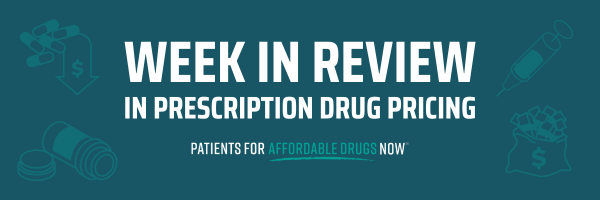
Happy Pride Month!
Welcome To The Week In Review.
1. Drug Prices Are Too High And Patients Pay The Price
- The Centers for Disease Control and Prevention (CDC) released a new report yesterday that shows millions of adults in the United States are not taking their medications as prescribed because of high costs. The data reveals that in 2021, about 9.2 million people “tried to save money by skipping doses, taking less than prescribed or delaying a prescription fill.” Women were more likely than men to “skip, delay or take less medication than was prescribed because of cost,” and people with disabilities were about “three times more likely than those without disabilities to ration their medications, as were people with fair or poor health compared with those with good health.” Not taking medicines can “make health conditions worse, result in more serious illness and lead to additional expensive treatment,” said Eric Tichy, a pharmacist and division chair of pharmacy supply solutions at the Mayo Clinic. And in some cases, it can have life-threatening consequences. We won’t stop fighting until reforms to our drug price system extend to everyone, especially those most historically disenfranchised. — (CNN, NBC)
2. The Truth About The Inflation Reduction Act
- Big Pharma dished out more lies this week about the Inflation Reduction Act’s effect on exclusivity periods for small molecule (9 years) versus biologic drugs (13 years). John Barkett, former Biden administration senior policy adviser, set the record straight: “today you get five years of exclusivity for a small molecule drug and 12 years of exclusivity for a biologic. Arguably, those exclusivities have a bigger impact on potential profits than when negotiation occurs,” Barkett told Politico. “I can’t recall ever hearing these arguments made about exclusivities in the past.” ZING! The Inflation Reduction Act actually contains more protections for small-molecule medicines because it narrows the difference in years of exemption from Medicare negotiation between biologics and small molecules to four years. Bottom line: the Inflation Reduction Act helps patients. A recent study in JAMA estimated that over 125,000 people on Medicare Part D would have paid lower out-of-pocket costs for “ultra-expensive” medications if the $2,000 cap on out-of-pocket costs had been in effect in 2019. Thanks to the Inflation Reduction Act, many patients on Medicare will feel relief when the new cap takes effect in 2025. — (Politico, Fierce Pharma)
3. The Looming Question Of Paying For Cell And Gene Therapies
- We’re on the brink of new, remarkable cell and gene therapies coming to market – but the question of how individuals and our healthcare system will pay for them remains top of mind. “Paying millions of dollars for one therapy is daunting for payers and has caused a lot of discussion in the sector about how best to address the issue,” explained Inside Precision Medicine. A new gene therapy for sickle cell disease – which affects about 100,000 people in the U.S. and disproportionately impacts African Americans — is a prime example, as the new cure on the horizon will likely be priced at $2 million to $3.5 million. “Because sickle cell disease disproportionately affects minority people… and because it has such an impact on quality of life and productivity, it tends to make people fall into a lower socioeconomic range,” said Dr. Lewis Hsu, chief medical officer of the Sickle Cell Disease Association of America. A new study from Yale echoed similar concerns: “Sickle cell disease is a prototypical rare disease that … historically [impacts a] marginalized patient population.” George Goshua, MD, MSc, assistant professor of medicine remarked. The cure “could be a ‘loss’ on equity when it further separates health outcomes in the poorest versus wealthiest patients.” We need to reform our system to address high prices for cell and gene therapies in order to maximize public health and equity. All patients deserve access to life-saving medication. — (Inside Precision Medicine, KDH News, Yale School of Medicine)
BONUS: William Feldman and Aaron Kesselheim’s new Washington Post op-ed shines light on yet another way drug companies abuse our patent system to protect lucrative monopolies at the cost of patient health and financial well-being. Worth a read!
Have a great weekend!
